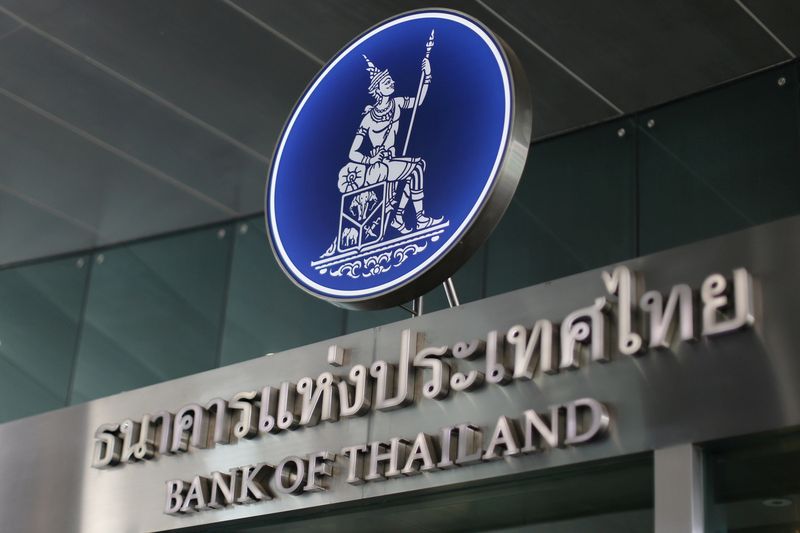By Orathai Sriring and Kitiphong Thaichareon
BANGKOK (Reuters) -Thailand's central bank left its key interest rate unchanged for a fifth straight meeting on Wednesday, saying the current level was neutral as it waits to see whether the country's new prime minister will make changes to economic stimulus policies.
The Bank of Thailand's (BOT) monetary policy committee voted 6-1 to hold the one-day repurchase rate at 2.50%, the highest in more than a decade, as predicted by 24 of 27 economists in a Reuters poll. Three economists had forecast a cut.
"The majority of the committee deems that the current policy interest rate is consistent with the economy converging to its potential, as well as conducive to safeguarding macro-financial stability," the BOT said in a statement.
The dissenting member voted for a 25-basis-point (bps) cut.
The key rate is neutral and not high compared with global rates, said Assistant Governor Piti Disyatat, adding that the BOT would ensure it does not hinder economic activity.
"If the conditions change, adjustments may be needed to maintain the neutral rate," he told a press conference. "We have to wait and see how stimulus measures will change," he added.
Miguel Chanco, chief emerging Asia economist at Pantheon Macroeconomics, said he expected two rate cuts, one 25-bps cut each in October and December as private domestic demand weakened.
"The recent change in administration will also be a factor, as the future of the previous government's Q4 digital cash handout is now more in question," he said in a note, referring to the government's flagship household stimulus programme.
"If this will no longer see the light of day, then the onus to support the economy will fall harder on monetary policy," he said.
Last week, a court removed Prime Minister Srettha Thavisin over a cabinet appointment.
Political newcomer Paetongtarn Shinawatra, daughter of former Prime Minister Thaksin Shinawatra, has become prime minister but has yet to form a new cabinet and announce policies.
Paetongtarn said she would maintain all of Srettha's policies, but she would seek to further study her Pheu Thai party's flagship "digital wallet" handout scheme worth 500 billion baht ($14.6 billion) for 50 million Thais, planned to be rolled out in the fourth quarter.
Some former central bank governors and economists have called the scheme fiscally risky, citing concerns over the impact on public debt. The previous government rejected such criticism.
The BOT raised its key rate by 200 basis points to 2.50% over eight meetings between August 2022 and September 2023, and has held it steady since then.
Several central banks have started easing policy, including in the Philippines and New Zealand last week. Sweden delivered its second cut on Tuesday, while the Bank of England and Switzerland also lowered rates recently. The next BOT policy review is due on Oct. 16.
Inflation, which was 0.83% in July, would return to its target range of 1% to 3% by the end of the year, the BOT said, adding inflation might be less than forecast this year.
Southeast Asia's second-largest economy grew at a faster pace of 2.3% in the April-June quarter on the year, but analysts said fiscal policy uncertainty clouded the outlook.

The BOT said the economy should grow as anticipated, with annual growth seen close to 3% in the third quarter and close to 4% in the last quarter of 2024. In June, it predicted growth of 2.6% for 2024.
($1 = 34.3200 baht)